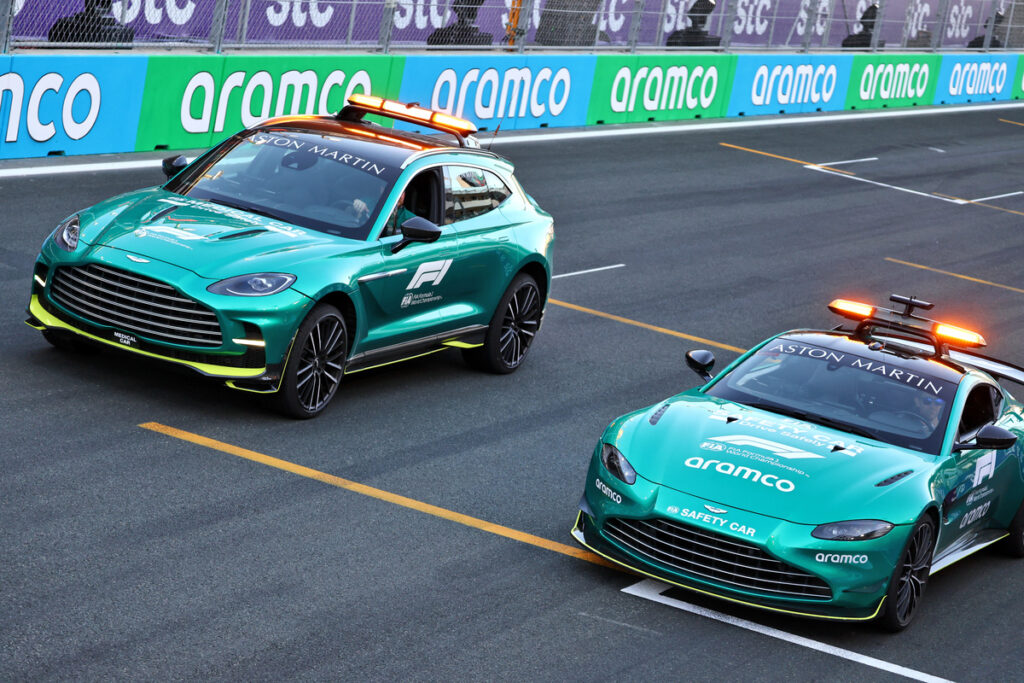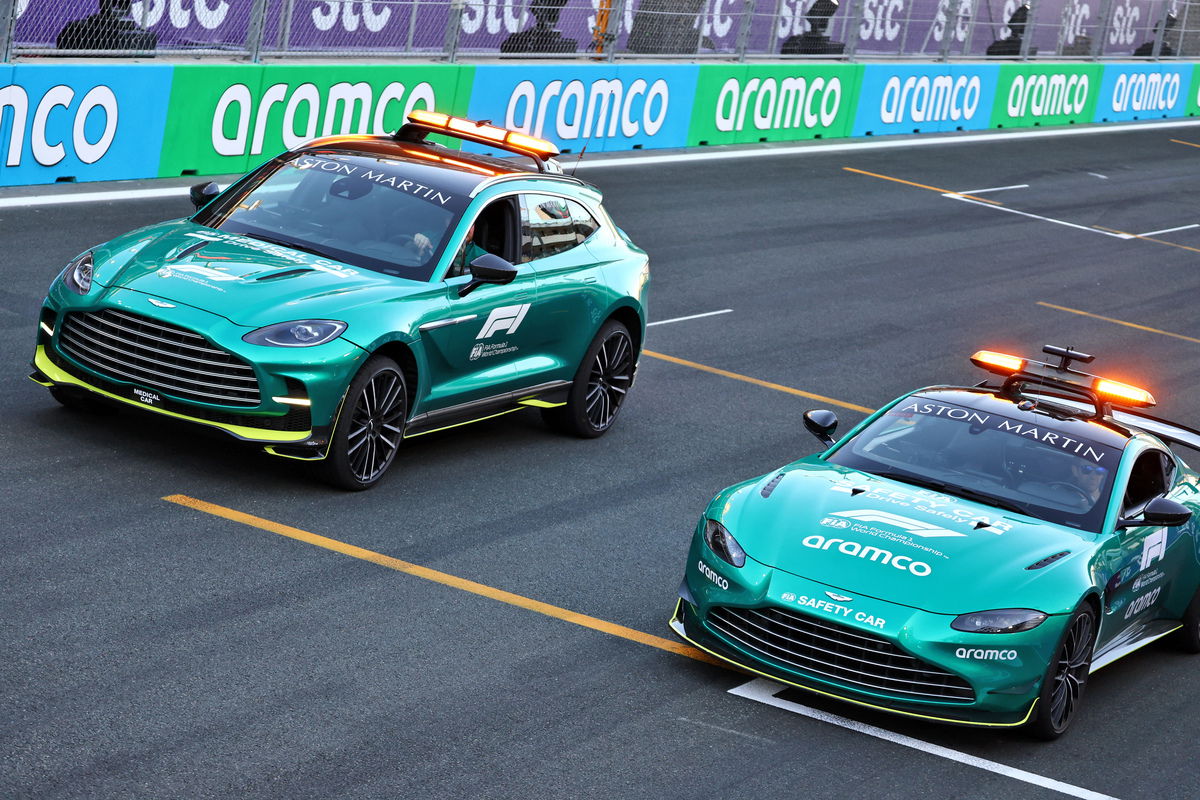
19.03.2023. Formula 1 World Championship, Rd 2, Saudi Arabian Grand Prix, Jeddah, Saudi Arabia, Race Day.
– www.xpbimages.com, EMail: [email protected] © Copyright: Batchelor / XPB Images
Aston Martin will continue to rely on Mercedes when it comes to its road car business despite a works relationship with Honda in Formula 1.
It was announced today that the Japanese company will provide Aston Martin with a factory supply of F1 power units from 2026 as the British outfit becomes the Honda’s factory team.
Honda has supplied Red Bull since 2019 and its junior team, Scuderia AlphaTauri, since 2018, powering the former to two consecutive world drivers’ championships.
However, with Red Bull set to work with Ford when F1 introduces its next era of power unit regulations, Honda needed a team to partner with.
Cue Aston Martin, which has been Formula 1’s most-improved team this season.
It’s a deal that creates a curious scenario whereby the road car business is partnered with Mercedes and its F1 operation with Honda.
Asked by Torquecafe about the impact of the new F1 agreement on the road car business, Martin Whitmarsh, Group CEO of Aston Martin Performance Technologies, confirmed the Mercedes link will continue.
“Aston Martin Lagonda is a public company. One of its shareholders is Mercedes-Benz,” Whitmarsh explained.
“A significant portion of the power units for the road cars come from Mercedes-Benz.
“That is planned to continue.”
The situation arises largely due to common ownership.
A consortium led by Canadian billionaire Lawrence Stroll purchased what was the ailing Force India F1 team midway through 2018.
MORE: This car is why Aston Martin is in F1.
In 2020, Stroll was involved in a rescue package for Aston Martin Lagonda as part of a consortium that tipped £182 million into the business, with another £500 million coming from other investors.
Also in 2020, Aston Martin Lagonda and Mercedes-Benz AG expanded their relationship, with the German car maker increasing its shareholding in exchange for its “advanced technologies.”
That includes access to powertrain technology, architecture for hybrid and electric vehicles, and more through to 2027.
It was a move designed to reduce Aston Martin Lagonda’s risk when developing those technologies in-house.
“With this new expanded partnership, we will be able to provide Aston Martin with access to new cutting-edge powertrain and software technologies and components, including next-generation hybrid and electric drive systems,” explained Wolf-Dieter Kurz, Head of Product Strategy at Mercedes-Benz Cars as the expanded deal was announced in 2020.
“Access to this technology and these components will be provided in exchange for new shares in Aston Martin.
“These new shares will be issued to us in several stages, taking our shareholding up to a maximum of no more than 20.0 percent of the common equity.
“The supply arrangements for these new technologies will be on commercial terms.”
Part of Stroll’s buy-in to Aston Martin Lagonda saw the F1 team, then known as Racing Point, rebranded in the road car’s image.
However, both the F1 team and car company remain separate entities with the former effectively a licensing deal for use of the name.
It’s akin to Sauber Motorsport operating under the Alfa Romeo banner – a commercial deal offering naming rights to the F1 team operated out of Hinwil.
“We are purely focused on racing activities, and we’ve chosen to partner with Honda,” Whitmarsh asserted in response to Torquecafe.
“It will be absolutely just focused on winning in Formula 1 with Honda, and Aston Martin Lagonda will continue to develop its own strategy.”
As such, there is no business conflict in terms of the F1 agreement with Honda, though it does create a confusing picture for the luxury car maker.
Under Stroll’s stewardship, Aston Martin Lagonda has targeted increasing the volume it sells annually to around 10,000 units and revenue to £2 billion by the end of the 2024/25 financial year.













Discussion about this post